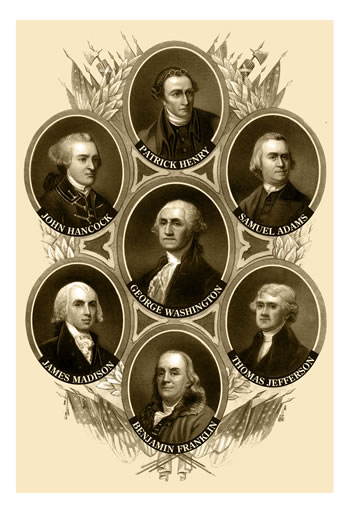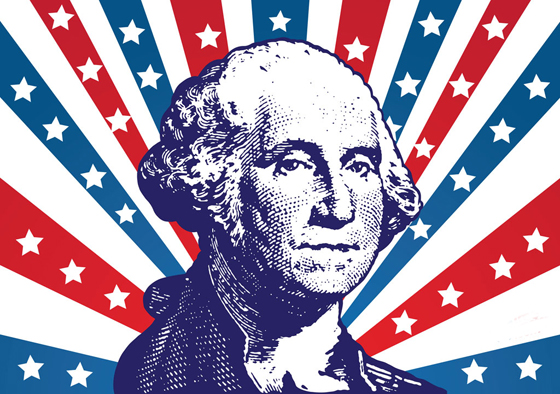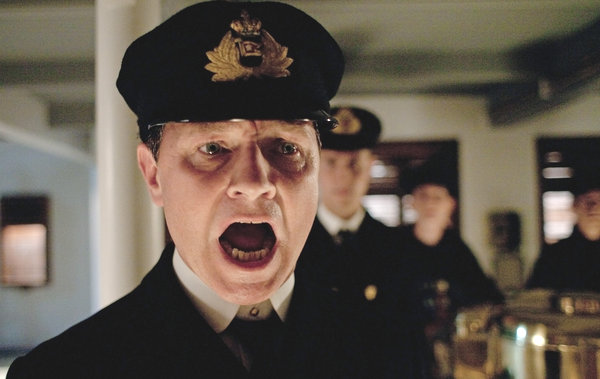It's the long Independence Day holiday weekend here in the USA as we celebrate all things America and summer and cook outs, so why not a quick rundown of some of the folks that helped make this long weekend possible?
So therefore I offer for your consideration this unresearched, incomplete, unscientific, completely subjective, and 100% accurate list of Founding Fathers, ranked.
Here goes:
10. Thomas Paine. Maybe not as well remembered as the folks who get their faces on currency and coins, but Paine's writing of Common Sense and other missives were critical to rallying support (and soldiers) for the impending War for Independence.
9. Patrick Henry. Merits inclusion on the list for breaking out the money quote of the Revolution - "Give me liberty, or give me death." Sadly for Henry, the British obliged. With the death part I mean.
8. Samuel Adams. Early rabble rouser with the Sons of Liberty and had a hand in the Boston Tea Party. Strong advocate for independence whose stock has climbed in more recent years by having a pretty decent beer named for him.
7. James Monroe. The youngest of the group, he gets props for being the guy in the boat holding the flag in the famous 'Washington crossing the Delaware' painting. Later rose to the Presidency and created the Monroe Doctrine, an important and influential element of US foreign policy for decades.
6. Alexander Hamilton. Pros: Helped create the American financial system and was the first US Secretary of the Treasury. Also the face of the underrated $10 bill. Cons: Killed in a duel by Aaron Burr. Seriously, a duel? How do you not find a better way to settle a beef?
5. James Madison. Main writer of the US Constitution, which is a pretty amazing credit. Later became the 4th US President, showing some impressive ambition as I am pretty sure if I had written the US Constitution I would have closed up shop and hit the corporate speaking circuit.
4. Thomas Jefferson. Principal author of the most famous political document in US history, the Declaration, so that has to give him a place on any such list. Also, as the third President negotiated the Louisiana Purchase for less than a year's worth of Timofey Mozgov, (nice one Lakers), and sent Lewis and Clark out on their adventure.
3. Benjamin Franklin. First American Renaissance Man - inventor, businessman, diplomat, writer, etc. Pretty much could do it all. The colonial version of the 5-tool player. Bonus points for being the face of the $100 bill. That's a baller right there.
2. John Adams. Great resume for JA. Worked on the Declaration of Independence, helped sort out the Treaty of Paris, became the first Vice President, and then the second President. Adams was an integral player in all the big events of the day.
1. George Washington. Pretty much a no-brainer pick for the top spot. General, leader, the first President, didn't let the other guys on this list make him the King. What's not to like about the guy?
Of course you could disagree with these rankings, but you would be wrong.
Happy holiday weekend!


 Steve
Steve

